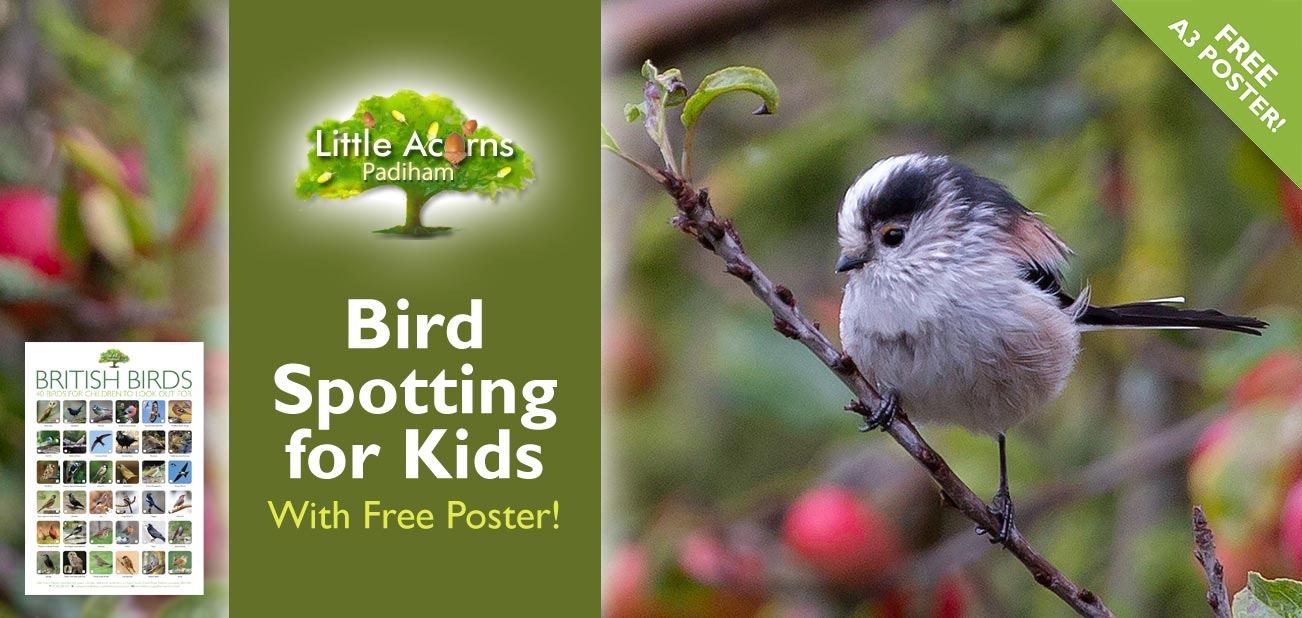
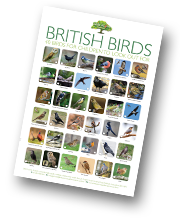 Today’s bird spotting activity for kids continues our series of nature-themed posts that each come with a free reference poster for families to download. Featuring 40 British birds, the activity and the poster represent a great opportunity to get children of all ages outdoors, closer to nature. As many of us know, nature is hugely beneficial to the health and well-being of little ones as well as fostering a greater respect and understanding of the natural world around us. Such an appreciation is also likely to encourage children to do their bit to help protect the environment as they grow older. Nature-based activities are therefore a win-win for children and the environment.
Today’s bird spotting activity for kids continues our series of nature-themed posts that each come with a free reference poster for families to download. Featuring 40 British birds, the activity and the poster represent a great opportunity to get children of all ages outdoors, closer to nature. As many of us know, nature is hugely beneficial to the health and well-being of little ones as well as fostering a greater respect and understanding of the natural world around us. Such an appreciation is also likely to encourage children to do their bit to help protect the environment as they grow older. Nature-based activities are therefore a win-win for children and the environment.
Did you know? UK bird populations have declined by a staggering 38 million birds during the last 5 decades. Even some of our once-common birds are in steep decline.
Children will naturally be fascinated by our feathered friends. When encouraged, even infants and toddlers will soon start to recognise and be able to name the different varieties of wild birds that they see. Robins, blackbirds, blue tits and wrens are always likely to be firm favourites and, with the help of the reference poster, children may soon also be able to identify additional species. We suggest printing the poster out at full size (A3), if possible, using high-quality settings and paper. Reducing to A4 is also possible on desktop printers that only print to that size. Either way, the posters can be displayed permanently on nursery or bedroom walls, or used as handheld reference when children are out and about. Tick boxes have been included alongside each bird, to allow children to mark which birds they have seen. The posters can also, of course, be viewed in glorious high resolution and fine detail on screen, for example on handheld tablets.
The poster is free and no sign-up of any kind is required. Here’s how it looks:
Bird Poster Preview
Download Instructions
Click the preview image, or this link, to download or view the poster, which is in PDF format (grab Acrobat Reader free here if you don’t already have it on your device). Please note that your individual browser settings will govern whether a left-click or a right-click either opens or saves the file. Try either to see which best suits your particular set-up.
Bird-Spotting Recommendations
Once children have their print-outs at the ready and are primed to go bird spotting*, there are a number of things that can help with their success:
- Birds will naturally gravitate towards sources of food. So, think about where they might find seeds and insects. For example, try looking around flower meadows, woodlands, lush hedgerows and parks or countryside featuring a variety of different natural environments.
- Failing that, put out some food for them — this is possible even if you don’t have a garden, as bird feeders can be attached to windows or suspended from walls and eaves. Many birds will like commercially available bird seed. Our best successes have been with ‘sunflower hearts’ and ‘peanut cake.’ Seed balls are also popular. Supermarkets, garden outlets and online stores usually sell such things fairly inexpensively. Side note: grated Cheddar cheese is also very popular. However, don’t feed birds too much of that and ensure never to give birds cheese that has mould, as it will be harmful to them.
- Timing is important too, because different birds are around at different times of the year. So, undertaking the activity periodically throughout the year may help to tick off some of those boxes on your poster!
- Teach children to be patient, observant and logical. Patience, perseverance, and critical thinking are all important skills for children to master, and this type of activity can help them to improve such skills.
- Teach children to keep noise levels very low. For thousands of years, humans have been seen by most wild animals as predators, so children need to learn to stay quiet and even tread quietly through woods etc. when on the lookout for any kind of wildlife. This can, however, make the activity even more exciting!
- Teach children stealth and the use of observation and auditory skills. Doing so will not only help them to see/hear more birds, but will also encourage them to hone motor, balance, coordination and sensory skills.
- Binoculars and monoculars may be useful tools for children to use to see birds further away or in close-up view. However, ensure they understand that they must never point them in the direction of the sun or towards other bright objects. Hence, we suggest they are only used by children under close supervision.
Have Fun Bird Spotting!
We hope you and your little one(s) have fun with this activity and find the free poster useful. We’ll gradually publish more nature-themed posters as time goes by, so watch this space for more free stuff! Nature-based and outdoor activities are great for children, teaching them so much about the world around them and their place within it. Such activities will help them develop new skills and gain new knowledge, all pretty much free of charge too! This type of activity may also instil in them a love of the outdoors, exploration and the natural world along with the flora and fauna in it. What’s more, children who spend significant time around nature often grow up to have a lifelong love of the Great Outdoors, a greater empathy towards other creatures and high levels of environmental consciousness. With all the problems the human race has made for the planet, that can only be a good thing.
Your High-Quality Nursery & Preschool in Padiham
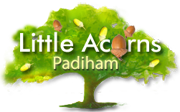
Children love our nature-based activities at Little Acorns Nursery in Padiham too, as we know how beneficial nature and outdoor play is to little ones. It’s one of the reasons we’ll be publishing more nature activity ideas for children to take part in over the coming months. So, watch this space and come back to visit our blog area regularly to get more ideas for kids’ activities along with lots of useful facts, information and news relating to early years education, learning, development and childcare.
Do you need a high-quality weekday childcare service for your baby, toddler or preschooler in the Padiham/Lancashire area? If so, do consider Little Acorns in Padiham as we’re simply one of the best nurseries and preschools around and give children a wonderful start in life. We also support Government schemes like free childcare hours for 2-year-olds and up to 30 free hours per week for 3 and 4-year-olds — plus many more.
Get in touch to register your child for a nursery or preschool place, request a tour of the setting with your child, or simply ask any questions. We’re here to help! Please choose an option below:
Little Acorns Nursery is located in Padiham, Lancashire (BB12) but is also close to Hapton, Rose Grove, Burnley, Altham, Huncoat, Read, Simonstone, Sabden, Higham and Wood End. So, we may suit families who require high-quality weekday childcare in any of those towns and villages.
* It goes without saying that children, particularly the very young, should always be supervised appropriately by a responsible adult.
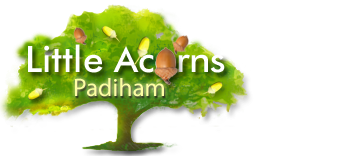
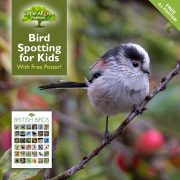
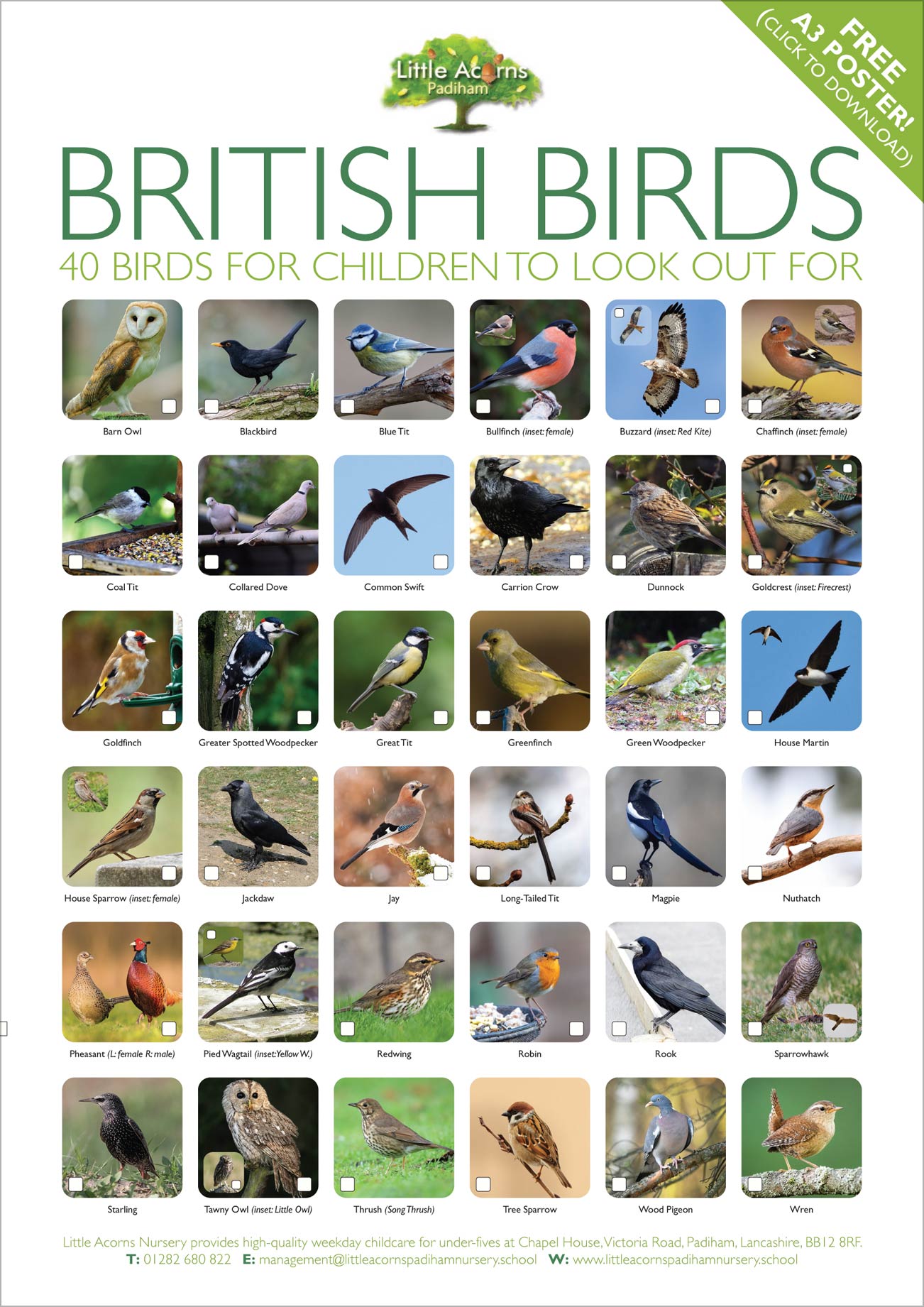
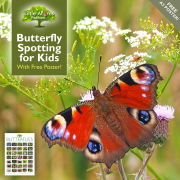
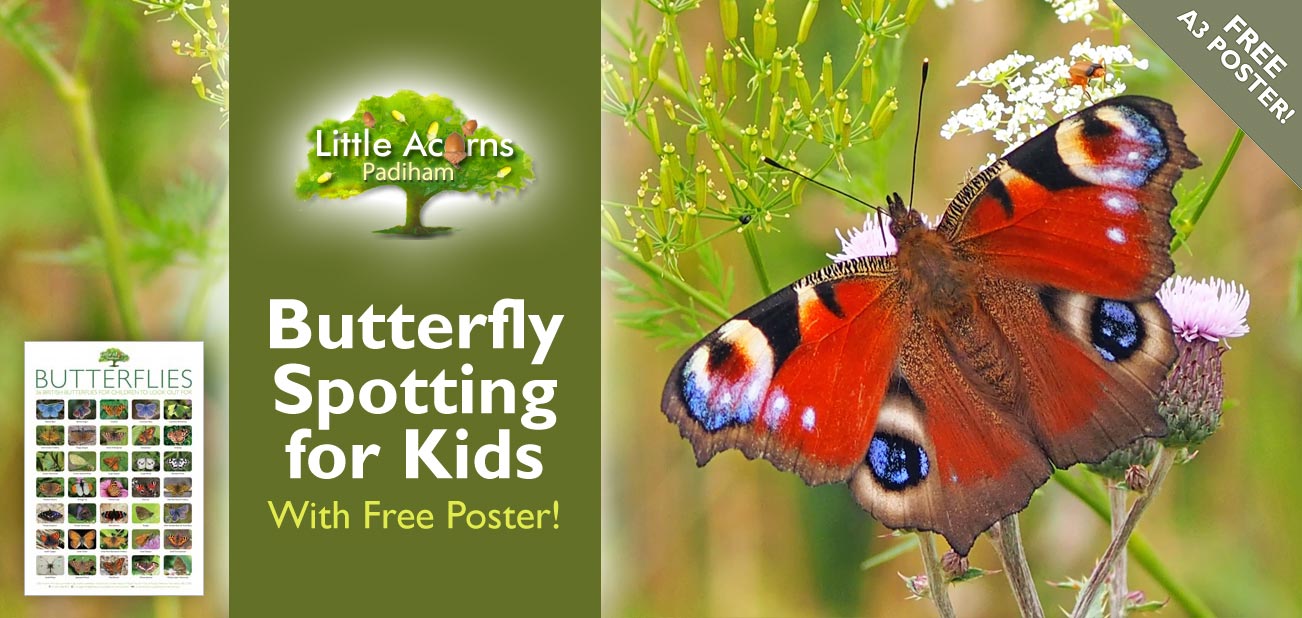
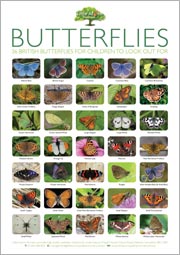 At the time of writing, it’s peak butterfly-spotting time — more adult butterflies can be seen in late July and early August than at any other time in the year. That makes it the perfect time for children to get out in nature to spot these charming creatures. Doing so is fun, educational and also beneficial in so many ways – we’ll explain more about that later.
At the time of writing, it’s peak butterfly-spotting time — more adult butterflies can be seen in late July and early August than at any other time in the year. That makes it the perfect time for children to get out in nature to spot these charming creatures. Doing so is fun, educational and also beneficial in so many ways – we’ll explain more about that later.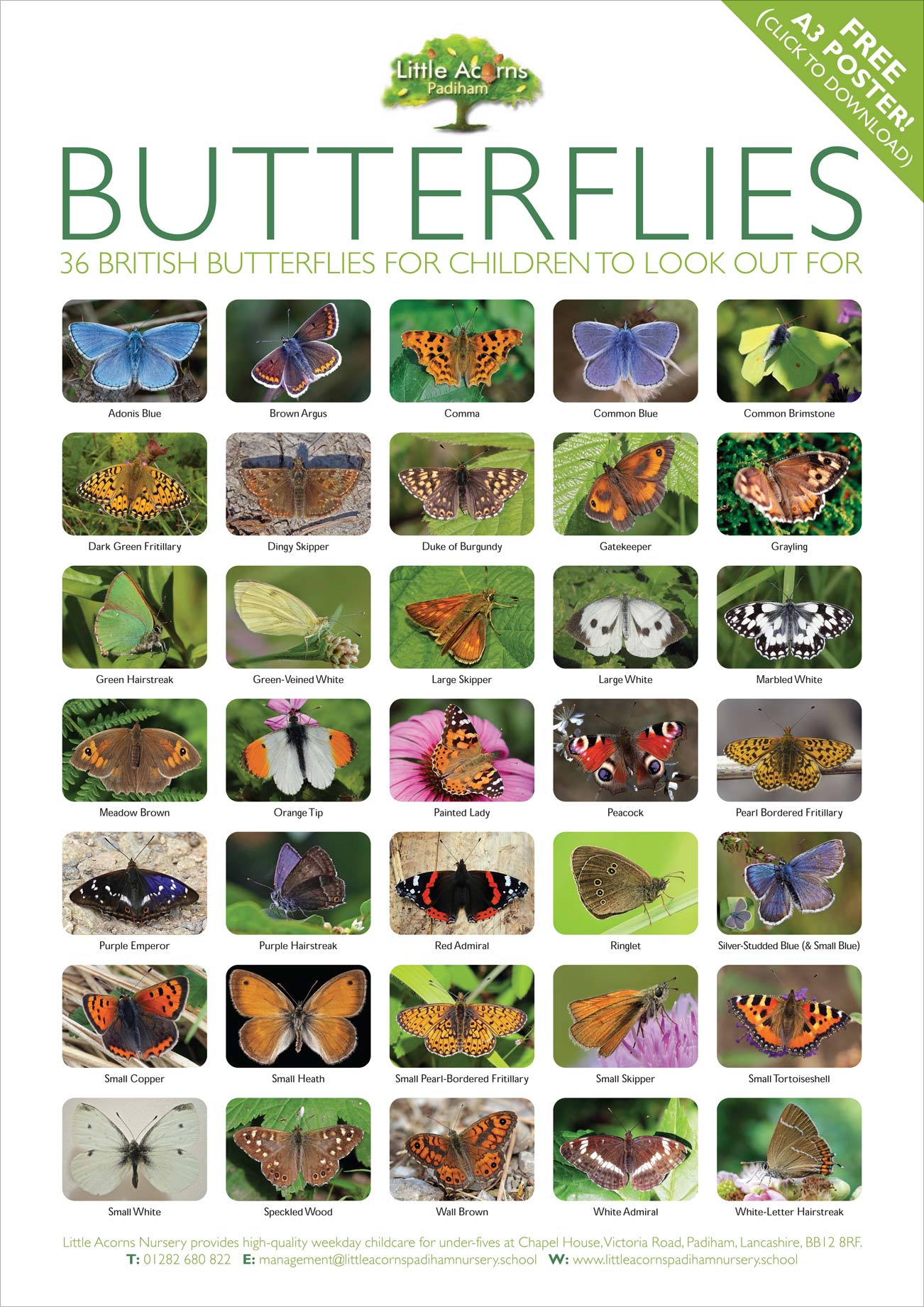
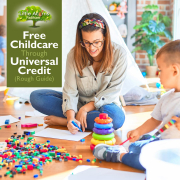
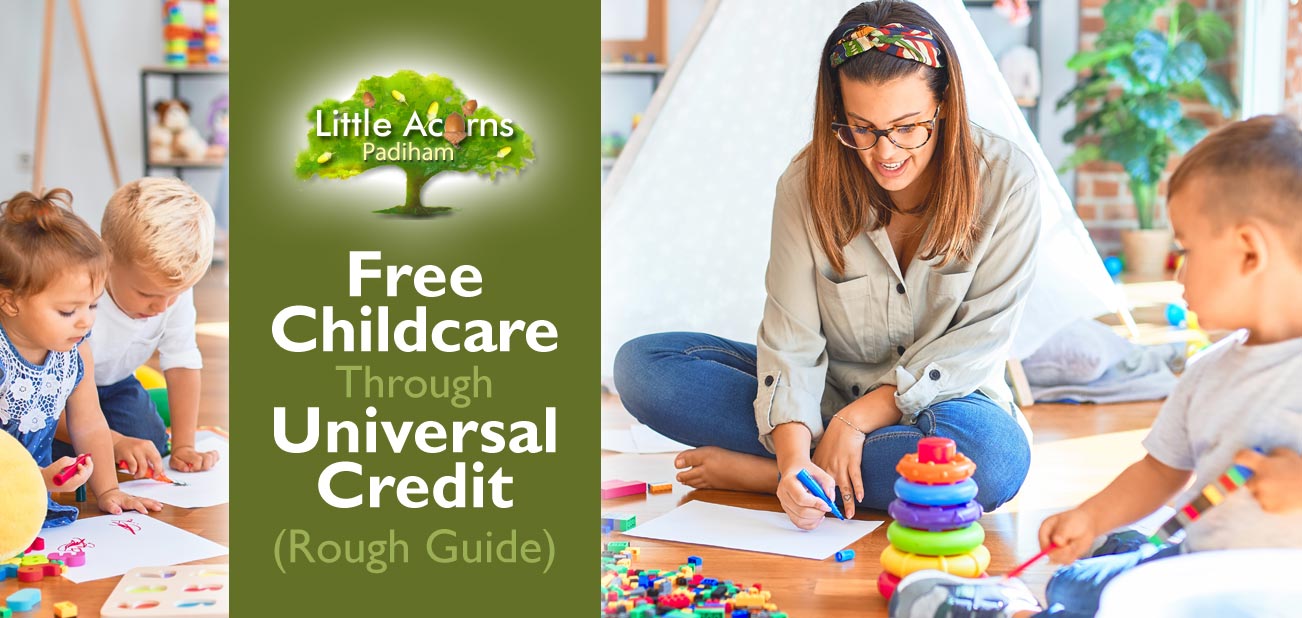
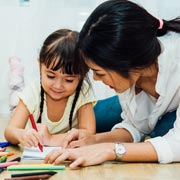 Usually, you will need to pay for childcare costs first and then reclaim them through your Universal Credit childcare support account. However, there are some circumstances where you may be able to get some of your childcare costs paid upfront through the scheme. This recent change is designed to help families essentially with cash flow so that a major barrier to working is removed. That, in turn, will also help the economy.
Usually, you will need to pay for childcare costs first and then reclaim them through your Universal Credit childcare support account. However, there are some circumstances where you may be able to get some of your childcare costs paid upfront through the scheme. This recent change is designed to help families essentially with cash flow so that a major barrier to working is removed. That, in turn, will also help the economy.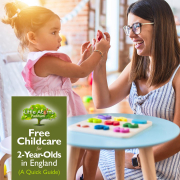
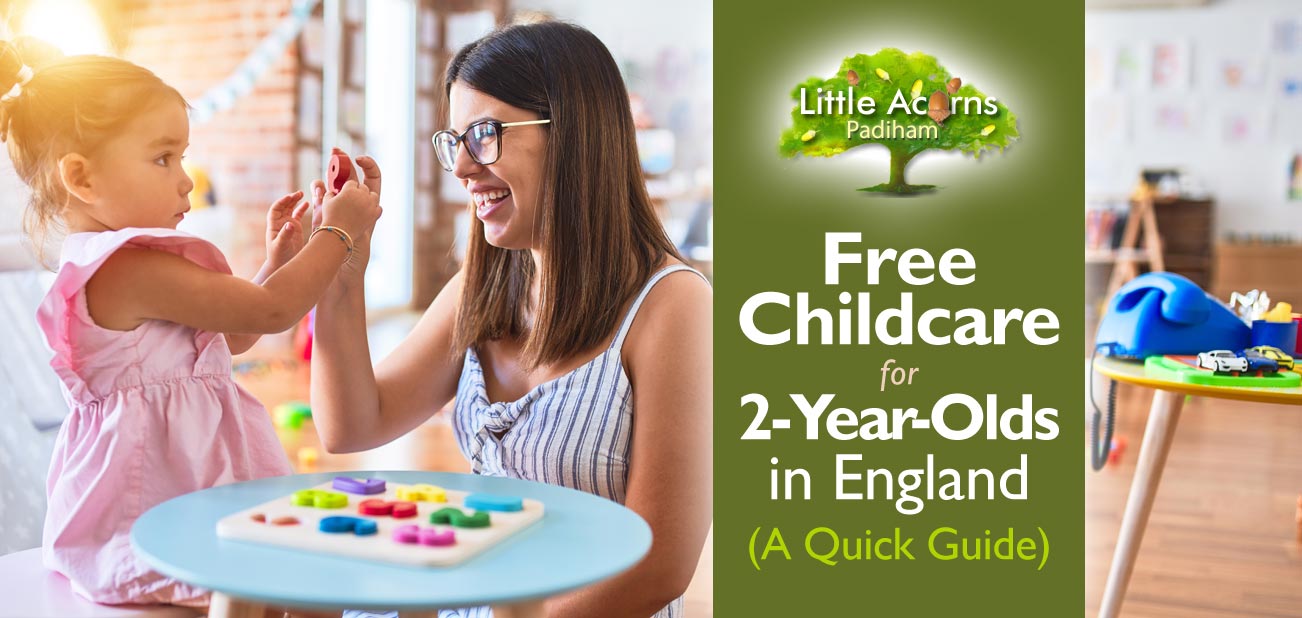
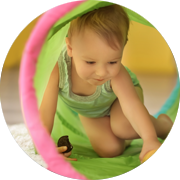 Eligible 2-year-olds can get a total of 570 free childcare hours during the course of a year. The entitlement is usually taken as 15 hours per week over 38 ‘term time’ weeks. However, families may wish to ask childcare providers if they can use the hours in a different way. For example, some may wish to stretch the hours out over 50 or so weeks of the year, in which case it would equate to approximately 11½ free hours per week. The nursery or childcare provider would need to confirm what’s possible. Any extra hours will need to be paid for by the family and the same is usually true for things like nappies, special trips and meals. Even so, 570 free childcare hours should really help families and may allow a stay-at-home parent to get back into the workplace sooner, even if only part-time.
Eligible 2-year-olds can get a total of 570 free childcare hours during the course of a year. The entitlement is usually taken as 15 hours per week over 38 ‘term time’ weeks. However, families may wish to ask childcare providers if they can use the hours in a different way. For example, some may wish to stretch the hours out over 50 or so weeks of the year, in which case it would equate to approximately 11½ free hours per week. The nursery or childcare provider would need to confirm what’s possible. Any extra hours will need to be paid for by the family and the same is usually true for things like nappies, special trips and meals. Even so, 570 free childcare hours should really help families and may allow a stay-at-home parent to get back into the workplace sooner, even if only part-time. Children aged two that live in England may be eligible if their parents/household are in receipt of one or more specific Government benefits. These include:
Children aged two that live in England may be eligible if their parents/household are in receipt of one or more specific Government benefits. These include: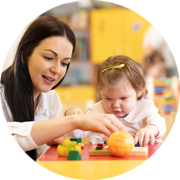 If none of the benefit-related criteria above applies, children aged 2 may still qualify for the childcare funding scheme in the following circumstances:
If none of the benefit-related criteria above applies, children aged 2 may still qualify for the childcare funding scheme in the following circumstances: The last category of eligible claimants is some 2-year-olds living in England who are non-UK citizens, whose households cannot claim benefits and whose household income is below a certain threshold. Thresholds vary from £26,500 to £38,600 depending on how many children the family has and whether they live inside or outside of London.
The last category of eligible claimants is some 2-year-olds living in England who are non-UK citizens, whose households cannot claim benefits and whose household income is below a certain threshold. Thresholds vary from £26,500 to £38,600 depending on how many children the family has and whether they live inside or outside of London.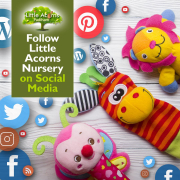
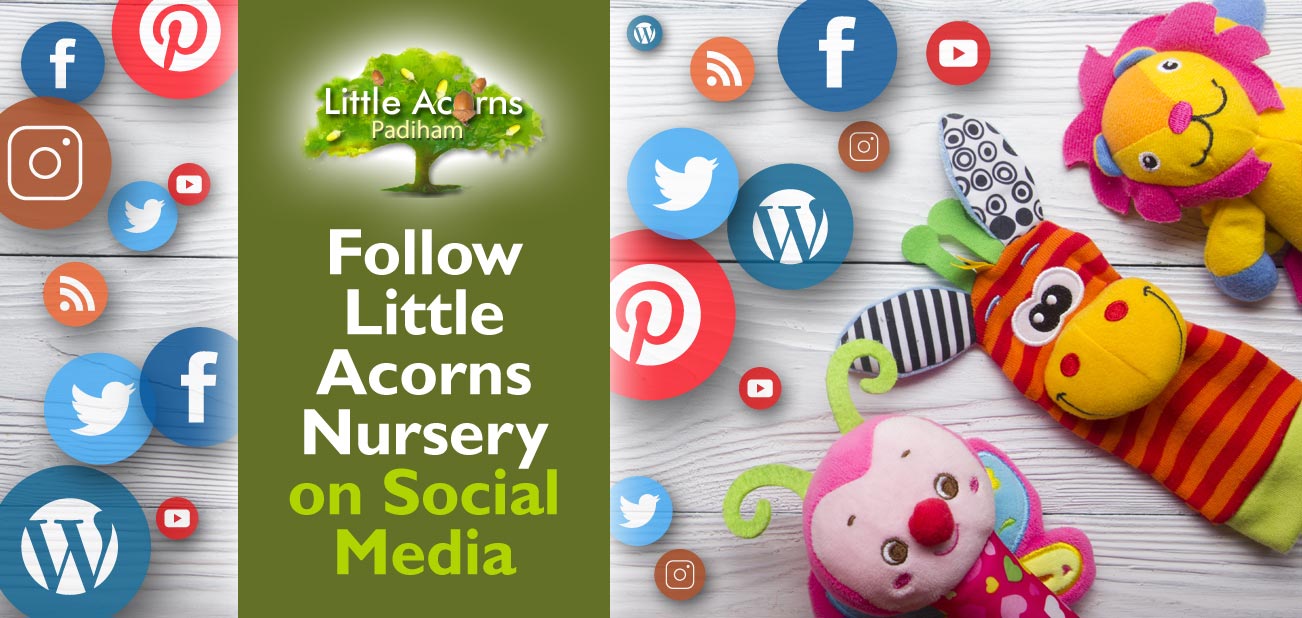
 This is what we call our blog (short for ‘web log’) where we regularly publish guides and useful information for parents of children under five.
This is what we call our blog (short for ‘web log’) where we regularly publish guides and useful information for parents of children under five.  We’re @NurseryPadiham on Twitter, so you can follow us at
We’re @NurseryPadiham on Twitter, so you can follow us at  We’re @TotsNursery on Facebook (because we took over the Adventure Tots childcare business), so you can follow us at
We’re @TotsNursery on Facebook (because we took over the Adventure Tots childcare business), so you can follow us at  We’re @LittleAcornsNurseryBB12 on Instagram, so you can follow us at
We’re @LittleAcornsNurseryBB12 on Instagram, so you can follow us at  We’re also @LittleAcornsNurseryBB12 on Pinterest, so you can follow our pins and boards at
We’re also @LittleAcornsNurseryBB12 on Pinterest, so you can follow our pins and boards at  We appreciate that, if you’re reading this, you’ve already found us. However, if you ever need to find us again and aren’t sure where to look, we’re also on Google.
We appreciate that, if you’re reading this, you’ve already found us. However, if you ever need to find us again and aren’t sure where to look, we’re also on Google. 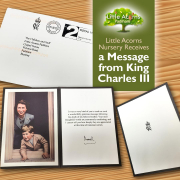
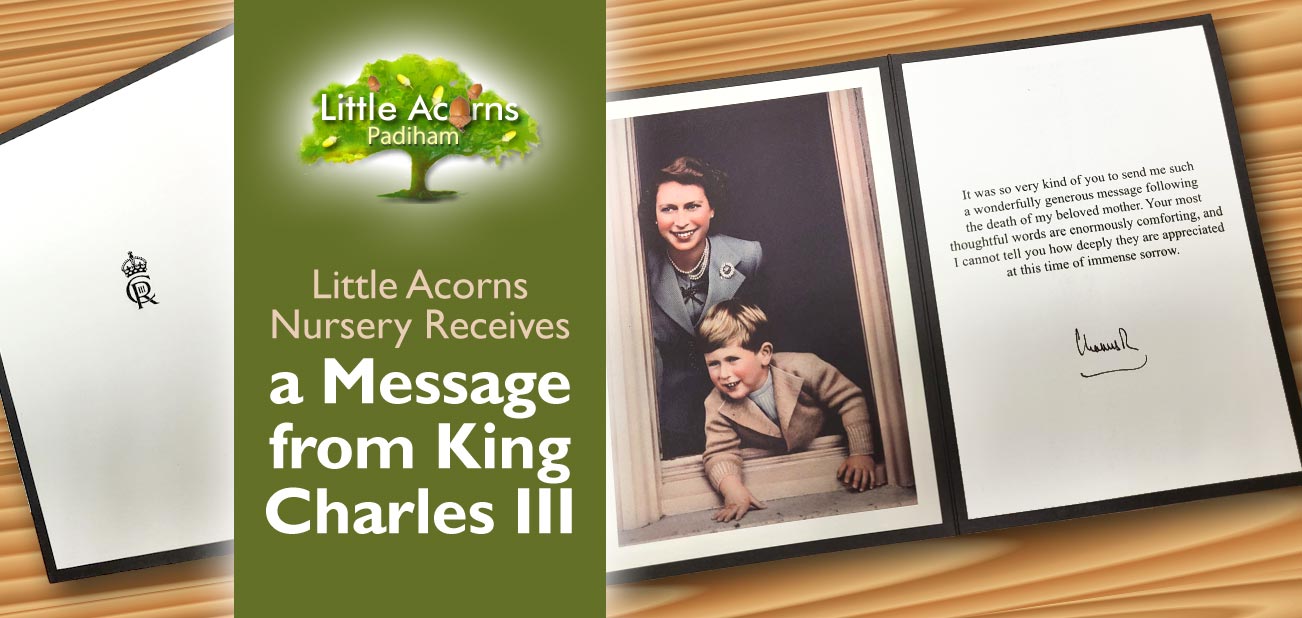
 Then, in early February, to our surprise and absolute delight, we received correspondence notably featuring a postmark from Buckingham Palace and a Royal crest. It was addressed to the children and staff at Little Acorns Nursery, Padiham. Inside was a beautiful and heartfelt reply card and message, sent by none other than King Charles himself!
Then, in early February, to our surprise and absolute delight, we received correspondence notably featuring a postmark from Buckingham Palace and a Royal crest. It was addressed to the children and staff at Little Acorns Nursery, Padiham. Inside was a beautiful and heartfelt reply card and message, sent by none other than King Charles himself!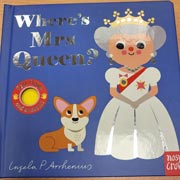 The eagle-eyed will notice that the little photo above also shows one of the nursery children’s most popular books, “Where’s Mrs Queen?” by Ingela P Arrhenius. Part of a series, this ‘early years’ book features charming illustrations and interactive felt flaps inside. The children can use these to reveal London-themed characters like a policeman, a bus driver, a soldier and Her Majesty Queen Elizabeth II herself (and a corgi dog, of course). The final page even integrates a surprise mirror, so the children can reveal their own faces — much to their delight and amusement! It’s a simple but fun, interactive and, importantly, sensory book for the little ones to discover and explore.
The eagle-eyed will notice that the little photo above also shows one of the nursery children’s most popular books, “Where’s Mrs Queen?” by Ingela P Arrhenius. Part of a series, this ‘early years’ book features charming illustrations and interactive felt flaps inside. The children can use these to reveal London-themed characters like a policeman, a bus driver, a soldier and Her Majesty Queen Elizabeth II herself (and a corgi dog, of course). The final page even integrates a surprise mirror, so the children can reveal their own faces — much to their delight and amusement! It’s a simple but fun, interactive and, importantly, sensory book for the little ones to discover and explore.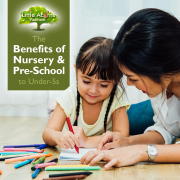
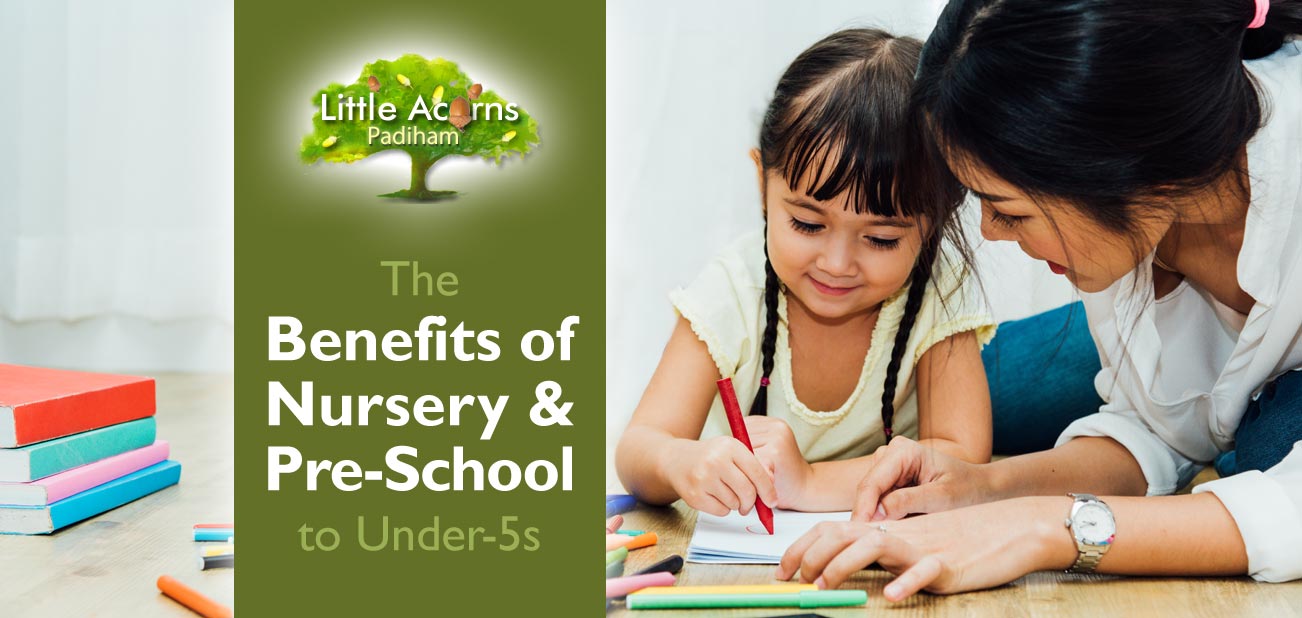
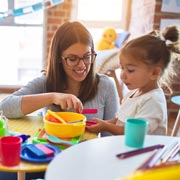 A good nursery or pre-school is so much more than just a crèche, playgroup, kindergarten or childminding service.
A good nursery or pre-school is so much more than just a crèche, playgroup, kindergarten or childminding service. 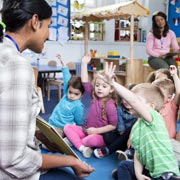 Nurseries like Little Acorns in Padiham provide a dynamic environment where children mostly learn through different types of play and pre-planned, carefully structured activities. Much of their learning is achieved through the application of the
Nurseries like Little Acorns in Padiham provide a dynamic environment where children mostly learn through different types of play and pre-planned, carefully structured activities. Much of their learning is achieved through the application of the  A good early years childcare provider like Little Acorns will also nurture every aspect of children’s personal development. Research suggests that starting childcare and a good early years education at a young age can have significant positive effects on children’s development.
A good early years childcare provider like Little Acorns will also nurture every aspect of children’s personal development. Research suggests that starting childcare and a good early years education at a young age can have significant positive effects on children’s development. Spending time at nursery and pre-school provides children with countless opportunities to interact with peers and to learn to socialise with others. Through doing so, they’ll develop their social skills generally, including things like learning good manners, needing to sometimes share or take turns, learning about mutual respect, and following rules.
Spending time at nursery and pre-school provides children with countless opportunities to interact with peers and to learn to socialise with others. Through doing so, they’ll develop their social skills generally, including things like learning good manners, needing to sometimes share or take turns, learning about mutual respect, and following rules.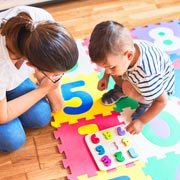 Good nurseries and pre-schools like Little Acorns welcome and support children of all abilities. As part of this and whenever possible, they will create an inclusive environment for children with special educational needs or disabilities (SEND). They’ll support them in every way they can including, where possible, provision of special equipment, adapting the environment to make it more accessible, and obtaining additional funding for extra resources. They’ll even work with outside professionals, where appropriate, to develop the best ‘joined-up’ plan to support children. The result is a positive and responsive culture where children feel comfortable and valued, irrespective of ability or disability.
Good nurseries and pre-schools like Little Acorns welcome and support children of all abilities. As part of this and whenever possible, they will create an inclusive environment for children with special educational needs or disabilities (SEND). They’ll support them in every way they can including, where possible, provision of special equipment, adapting the environment to make it more accessible, and obtaining additional funding for extra resources. They’ll even work with outside professionals, where appropriate, to develop the best ‘joined-up’ plan to support children. The result is a positive and responsive culture where children feel comfortable and valued, irrespective of ability or disability.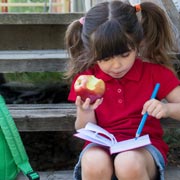 All of the above will really help children to develop the skills and confidence they need to absolutely thrive once they start at primary school. As well as being more able and literate from the moment they start, they’ll more easily be able to follow routines, listen to instructions, and work independently. They’ll absolutely hit the ground running with the existing knowledge, tools and abilities that they learned during their all-important early years. Indeed, those children who receive a high quality early years education have been shown to attain higher grades in their GCSEs and can be the equivalent of a year ahead by the time they reach the age of 15.
All of the above will really help children to develop the skills and confidence they need to absolutely thrive once they start at primary school. As well as being more able and literate from the moment they start, they’ll more easily be able to follow routines, listen to instructions, and work independently. They’ll absolutely hit the ground running with the existing knowledge, tools and abilities that they learned during their all-important early years. Indeed, those children who receive a high quality early years education have been shown to attain higher grades in their GCSEs and can be the equivalent of a year ahead by the time they reach the age of 15.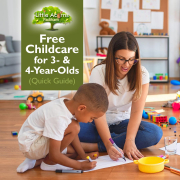
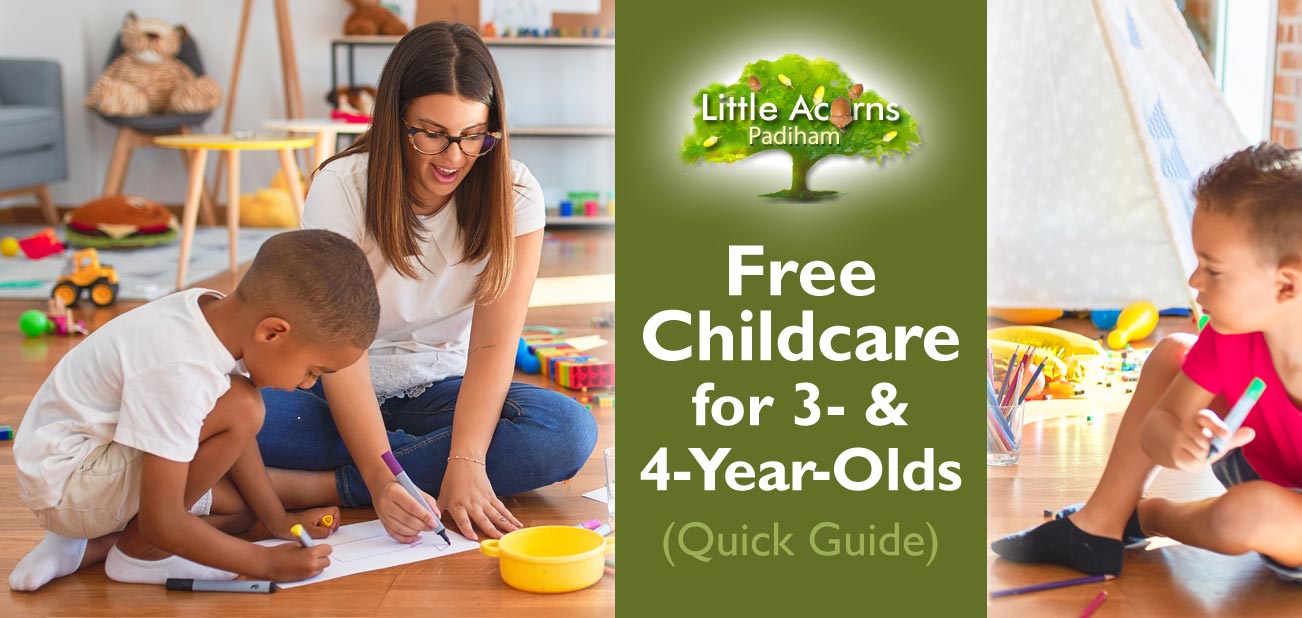
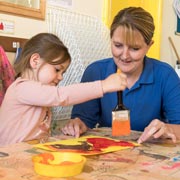 If you live in England and have a child aged 3 or 4, this article is for you. Did you know that your child is entitled to free childcare each week? In fact, virtually all children aged 3 or 4 that live in England can get an impressive 570 hours of free childcare each year. Some can even get twice that amount of funded childcare hours. Today we’ll go through what’s available – totally free of charge – and the rules around eligibility.
If you live in England and have a child aged 3 or 4, this article is for you. Did you know that your child is entitled to free childcare each week? In fact, virtually all children aged 3 or 4 that live in England can get an impressive 570 hours of free childcare each year. Some can even get twice that amount of funded childcare hours. Today we’ll go through what’s available – totally free of charge – and the rules around eligibility.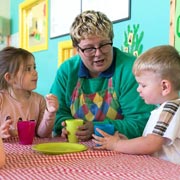 The ‘15 Hours Free Childcare’ scheme is a Government-funded initiative that provides free early education and childcare for all 3- and 4-year-olds living in England. Under the scheme, eligible children are entitled to 15 hours of free childcare each week, usually spread over 38 weeks, to total 570 hours per year. Optionally, however, some families may choose to have their child attend a childcare setting for less than 15 hours per week but spread the free hour allowance throughout the whole year. Others may prefer to take longer breaks during the holidays and using the hours more intensively during term time. Parents/guardians will need to check what’s possible with their particular childcare provider (we try to be as flexible as possible at
The ‘15 Hours Free Childcare’ scheme is a Government-funded initiative that provides free early education and childcare for all 3- and 4-year-olds living in England. Under the scheme, eligible children are entitled to 15 hours of free childcare each week, usually spread over 38 weeks, to total 570 hours per year. Optionally, however, some families may choose to have their child attend a childcare setting for less than 15 hours per week but spread the free hour allowance throughout the whole year. Others may prefer to take longer breaks during the holidays and using the hours more intensively during term time. Parents/guardians will need to check what’s possible with their particular childcare provider (we try to be as flexible as possible at 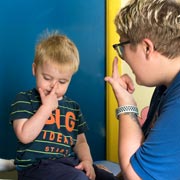 You must be the child’s parent or legal guardian.
You must be the child’s parent or legal guardian.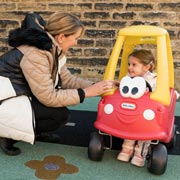 The ‘30 Hours Free Childcare’ scheme is a very similar Government-funded initiative that provides eligible families in England with up to 30 hours of free childcare per week. Again, this is for children aged 3 and 4. The scheme is designed to help working families with the cost of childcare and to support parents who want to return to work or increase their hours.
The ‘30 Hours Free Childcare’ scheme is a very similar Government-funded initiative that provides eligible families in England with up to 30 hours of free childcare per week. Again, this is for children aged 3 and 4. The scheme is designed to help working families with the cost of childcare and to support parents who want to return to work or increase their hours.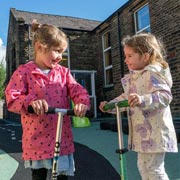 You are usually still be eligible if you are off work on annual leave or sick leave, or parental leave if it is not being taken for the same child you are claiming childcare funding for.
You are usually still be eligible if you are off work on annual leave or sick leave, or parental leave if it is not being taken for the same child you are claiming childcare funding for.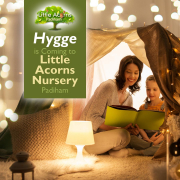
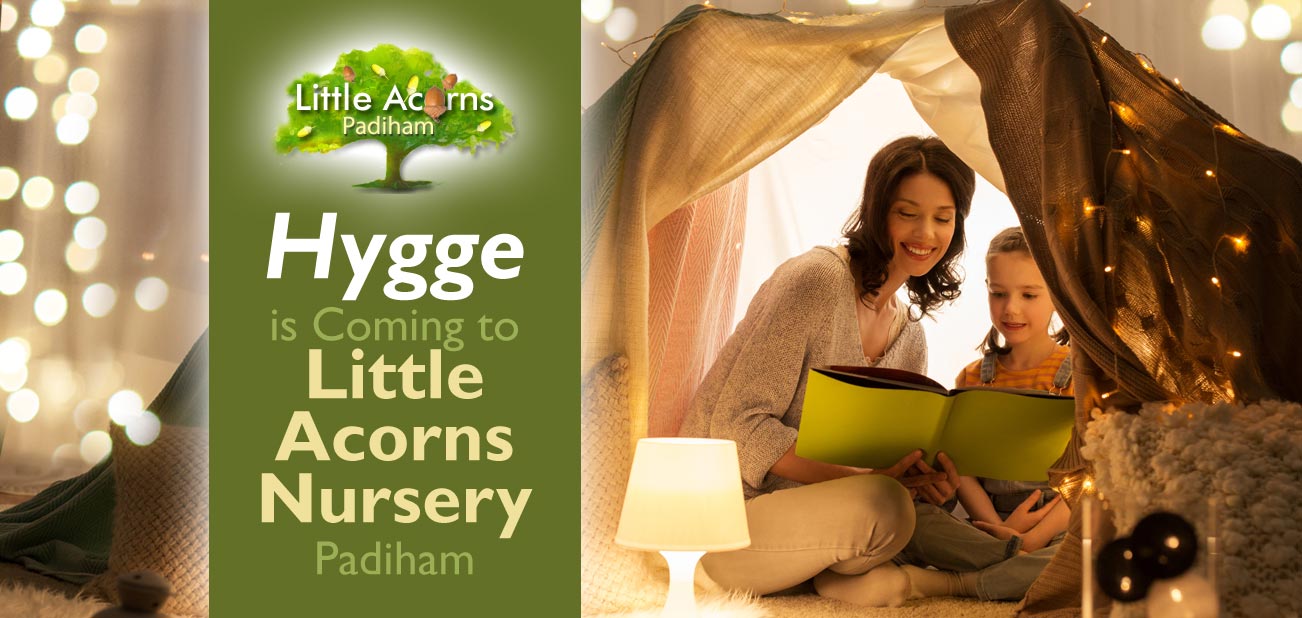
 One of the exciting new initiatives that we have planned for Little Acorns nursery, Padiham, is to make it a Hygge setting. In today’s post, we explain what Hygge means and how it will benefit the setting, especially the children. Once the Hygge initiative has been fully adopted, it will positively transform the whole feel of the nursery and benefit everyone. Introducing Hygge is exciting and the children are going to love it! To be truthful, we can’t wait to get started!
One of the exciting new initiatives that we have planned for Little Acorns nursery, Padiham, is to make it a Hygge setting. In today’s post, we explain what Hygge means and how it will benefit the setting, especially the children. Once the Hygge initiative has been fully adopted, it will positively transform the whole feel of the nursery and benefit everyone. Introducing Hygge is exciting and the children are going to love it! To be truthful, we can’t wait to get started! Counter to the instincts of those whose first language is English, Hygge is pronounced “Hue-Gah” rather than “Hig”. It is popular in Denmark and Norway and is a Danish word that refers to a rather beautiful lifestyle; one of cosiness, homeliness, contentment and comfort. Wellbeing, warmth and conviviality are central to the Hygge approach. Friendliness, a welcoming atmosphere and closer links to nature are key parts of the Hygge way of life too. Having a more simple lifestyle and living far more in the moment are also part and parcel of Hygge. With such facets, Hygge naturally fosters happiness and contentment in everyone that it touches. Indeed, that’s one of the many reasons we can’t wait for both children and staff to start embracing it at Little Acorns Nursery.
Counter to the instincts of those whose first language is English, Hygge is pronounced “Hue-Gah” rather than “Hig”. It is popular in Denmark and Norway and is a Danish word that refers to a rather beautiful lifestyle; one of cosiness, homeliness, contentment and comfort. Wellbeing, warmth and conviviality are central to the Hygge approach. Friendliness, a welcoming atmosphere and closer links to nature are key parts of the Hygge way of life too. Having a more simple lifestyle and living far more in the moment are also part and parcel of Hygge. With such facets, Hygge naturally fosters happiness and contentment in everyone that it touches. Indeed, that’s one of the many reasons we can’t wait for both children and staff to start embracing it at Little Acorns Nursery.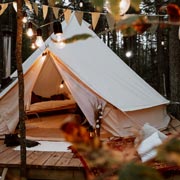 Once we’ve adopted Hygge at the nursery, it’ll look and feel warmer and far more welcoming, with softer, warmer lighting and a more homely atmosphere. Gone will be anything that looks sterile, cold or even harshly lit. Instead, expect to see soft furnishings including cushions, rugs and blankets. Look out for little nooks where children can gather in small groups to read, play or engage with each other or with staff. Hygge nurseries are also synonymous with dens and teepees, allowing children to ‘nest’ in calm, cosy spaces and corners. All these things will also deaden sound, reduce noise levels, and banish echoes, making for a much calmer setting entirely.
Once we’ve adopted Hygge at the nursery, it’ll look and feel warmer and far more welcoming, with softer, warmer lighting and a more homely atmosphere. Gone will be anything that looks sterile, cold or even harshly lit. Instead, expect to see soft furnishings including cushions, rugs and blankets. Look out for little nooks where children can gather in small groups to read, play or engage with each other or with staff. Hygge nurseries are also synonymous with dens and teepees, allowing children to ‘nest’ in calm, cosy spaces and corners. All these things will also deaden sound, reduce noise levels, and banish echoes, making for a much calmer setting entirely. We mentioned that Hygge brings people closer to nature and that will be evident not only outside but indoors too. We’ll ensure there are natural objects and materials for the children to explore and handle, including things like smooth pebbles, wood surfaces, pine cones and perhaps reed and wicker items. These will be lovely to handle and to be around, stimulating multiple senses, which is so important in the young. The introduction of appropriate plants will also
We mentioned that Hygge brings people closer to nature and that will be evident not only outside but indoors too. We’ll ensure there are natural objects and materials for the children to explore and handle, including things like smooth pebbles, wood surfaces, pine cones and perhaps reed and wicker items. These will be lovely to handle and to be around, stimulating multiple senses, which is so important in the young. The introduction of appropriate plants will also  Children will also be encouraged to be convivial, i.e. be friendly, inclusive, pleasant and welcoming to one another and to staff. We always try to foster a culture of mutual respect and equality, but the introduction of Hygge to the nursery will take this even further. Sharing and politeness are to be encouraged. Play will be calmer and more harmonious. With Hygge, growing friendships will naturally blossom. Hygge minimises conflict and leads to harmony, calmness and a very pleasurable day-to-day experience for everyone touched by it.
Children will also be encouraged to be convivial, i.e. be friendly, inclusive, pleasant and welcoming to one another and to staff. We always try to foster a culture of mutual respect and equality, but the introduction of Hygge to the nursery will take this even further. Sharing and politeness are to be encouraged. Play will be calmer and more harmonious. With Hygge, growing friendships will naturally blossom. Hygge minimises conflict and leads to harmony, calmness and a very pleasurable day-to-day experience for everyone touched by it.